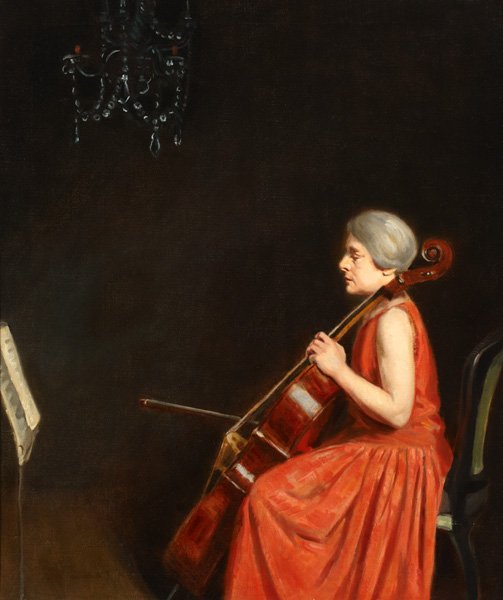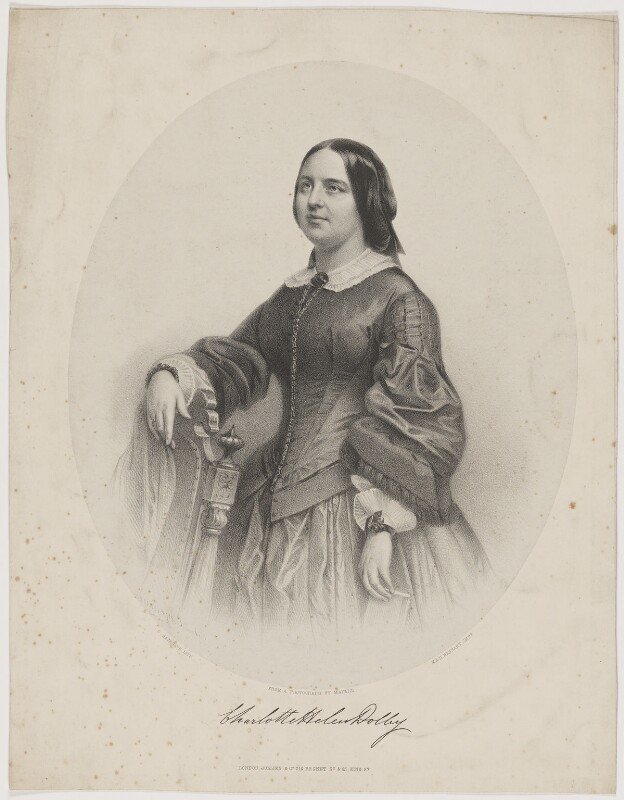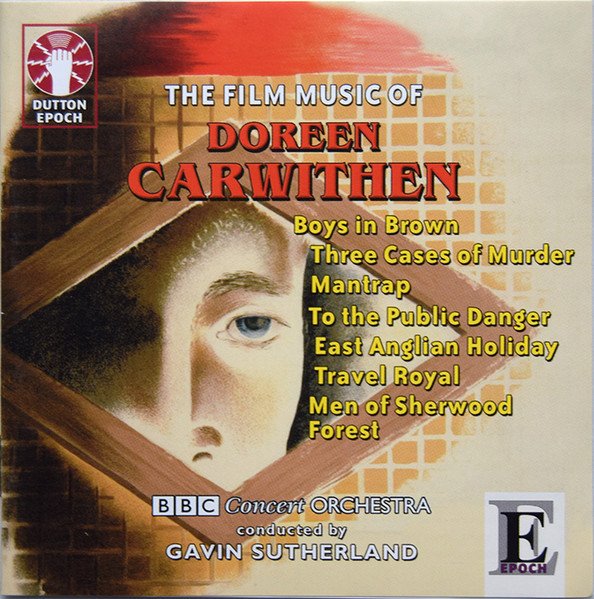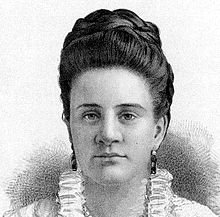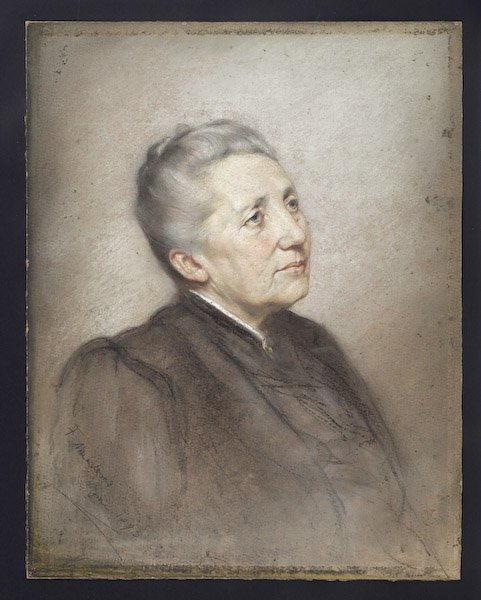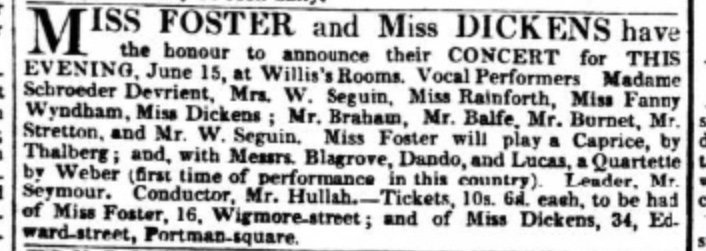To S. M. A Young African Painter, On Seeing His Works: Phillis Wheatley
“To show the lab’ring bosom’s deep intent,
And thought in living characters to paint,
When first thy pencil did those beauties give,
And breathing figures learnt from thee to live,
How did those prospects give my soul delight,
A new creation rushing on my sight?
Still, wond’rous youth! each noble path pursue,
On deathless glories fix thine ardent view:
Still may the painter’s and the poet’s fire
To aid thy pencil, and thy verse conspire!
And may the charms of each seraphic theme
Conduct thy footsteps to immortal fame!
High to the blissful wonders of the skies
Elate thy soul, and raise thy wishful eyes.
Thrice happy, when exalted to survey
That splendid city, crown’d with endless day,
Whose twice six gates on radiant hinges ring:
Celestial Salem blooms in endless spring.
Calm and serene thy moments glide along,
And may the muse inspire each future song!
Still, with the sweets of contemplation bless’d,
May peace with balmy wings your soul invest!
But when these shades of time are chas’d away,
And darkness ends in everlasting day,
On what seraphic pinions shall we move,
And view the landscapes in the realms above?
There shall thy tongue in heav’nly murmurs flow,
And there my muse with heav’nly transport glow:
No more to tell of Damon’s tender sighs,
Or rising radiance of Aurora’s eyes,
For nobler themes demand a nobler strain,
And purer language on th’ ethereal plain.
Cease, gentle muse! the solemn gloom of night
Now seals the fair creation from my sight.”
WITH TWO DWARF JAPANESE MAPLES: Natalie Clifford Barney
“These ancient trees for your new room.
May many happy evenings fall
With their reflections on the wall,
Making embroideries of the gloom,
And let their leaves of red and green
Rustle with small desires and fears,
But never water them with tears
For all that is or has not been.
Lives pass as shadows on a screen,
Whether you dream or sing or sew,
Or if some time Regret instead
Should bow, my Loveliest, your head,
Send me a leaf so I shall know:
For Hope the green, for Love the red.”
The Feast of Lights: Emma Lazarus
“Kindle the taper like the steadfast star
Ablaze on evening’s forehead o’er the earth,
And add each night a lustre till afar
An eightfold splendor shine above thy hearth.
Clash, Israel, the cymbals, touch the lyre,
Blow the brass trumpet and the harsh-tongued horn;
Chant psalms of victory till the heart takes fire,
The Maccabean spirit leap new-born.
Remember how from wintry dawn till night,
Such songs were sung in Zion, when again
On the high altar flamed the sacred light,
And, purified from every Syrian stain,
The foam-white walls with golden shields were hung,
With crowns and silken spoils, and at the shrine,
Stood, midst their conqueror-tribe, five chieftains sprung
From one heroic stock, one seed divine.
Five branches grown from Mattathias’ stem,
The Blessed John, the Keen-Eyed Jonathan,
Simon the fair, the Burst-of Spring, the Gem,
Eleazar, Help of-God; o’er all his clan
Judas the Lion-Prince, the Avenging Rod,
Towered in warrior-beauty, uncrowned king,
Armed with the breastplate and the sword of God,
Whose praise is: “He received the perishing.”
They who had camped within the mountain-pass,
Couched on the rock, and tented neath the sky,
Who saw from Mizpah’s heights the tangled grass
Choke the wide Temple-courts, the altar lie
Disfigured and polluted—who had flung
Their faces on the stones, and mourned aloud
And rent their garments, wailing with one tongue,
Crushed as a wind-swept bed of reeds is bowed,
Even they by one voice fired, one heart of flame,
Though broken reeds, had risen, and were men,
They rushed upon the spoiler and o’ercame,
Each arm for freedom had the strength of ten.
Now is their mourning into dancing turned,
Their sackcloth doffed for garments of delight,
Week-long the festive torches shall be burned,
Music and revelry wed day with night.
Still ours the dance, the feast, the glorious Psalm,
The mystic lights of emblem, and the Word.
Where is our Judas? Where our five-branched palm?
Where are the lion-warriors of the Lord?
Clash, Israel, the cymbals, touch the lyre,
Sound the brass trumpet and the harsh-tongued horn,
Chant hymns of victory till the heart take fire,
The Maccabean spirit leap new-born!”
Immortal Aphrodite: Sappho, trans. Julia Dubnoff
“Immortal Aphrodite, on your intricately brocaded throne,
child of Zeus, weaver of wiles, this I pray:
Dear Lady, don’t crush my heart
with pains and sorrows.
But come here, if ever before,
when you heard my far-off cry,
you listened. And you came,
leaving your father’s house,
yoking your chariot of gold.
Then beautiful swift sparrows led you over the black earth
from the sky through the middle air,
whirling their wings into a blur.
Rapidly they came. And you, O Blessed Goddess,
a smile on your immortal face,
asked what had happened this time,
why did I call again,
and what did I especially desire
for myself in my frenzied heart:
“Who this time am I to persuade
to your love? Sappho, who is doing you wrong?
For even if she flees, soon she shall pursue.
And if she refuses gifts, soon she shall give them.
If she doesn’t love you, soon she shall love
even if she’s unwilling.”
Come to me now once again and release me
from grueling anxiety.
All that my heart longs for,
fulfill. And be yourself my ally in love’s battle.
Some say an army of horsemen,
some of footsoldiers, some of ships,
is the fairest thing on the black earth,
but I say it is what one loves.
It’s very easy to make this clear
to everyone, for Helen,
by far surpassing mortals in beauty,
left the best of all husbands
and sailed to Troy,
mindful of neither her child
nor her dear parents, but
with one glimpse she was seduced by
Aphrodite. For easily bent...
and nimbly...[missing text]...
has reminded me now
of Anactoria who is not here;
I would much prefer to see the lovely
way she walks and the radiant glance of her face
than the war-chariots of the Lydians or
their footsoldiers in arms.”
I should like to say to the world: Iris Tree
“I should like to say to the world:
I have launched my soul like a ship upon free waters;
Beautiful she stands in the docks with proud masts cutting the sky,
Perfectly poised, her white sails spreading like wings,
Her figurehead a woman with breasts that daunt the spray,
Her flag a flutter of coloured exuberance.
I should like to see her plunging out of the idle harbour
Where the sulky tide drifts scum, and the sailors wrangle and shout,
In a thunder of churning waves ramping before her like dappled stallions,
Blossoming behind her a field of etiolate lilies....
But to the mimicking, plotting, miserly, cynical,
To the rabble and gabble that dance and kill on the quay,
I can only say that my soul is a sleeping gondola
Lulled by a jester’s mandolin, till night is atinkle with tunes
And lantern-lights, along the indolent backwaters.”
Snowflake Song: Hilda Conkling
“Snowflakes come in fleets
Like ships over the sea.
The moon shines down on the crusty snow:
The stars make the sky sparkle like gold-fish
In a glassy bowl.
Bluebirds are gone now,
But they left their song behind them.
The moon seems to say:
It is time for summer when the birds come back
To pick up their lonesome songs.”
Curtain Raiser: Gertrude Stein
“Six.
Twenty.
Outrageous.
Late,
Weak.
Forty.
More in any wetness.
Sixty three certainly.
Five.
Sixteen.
Seven.
Three.
More in orderly. Seventy-five.”
Risk: Anaïs Nin
“And then the day came,
when the risk
to remain tight
in a bud
was more painful
than the risk
it took
to blossom.”
On My Mother’s Birthday (Written at the age of 8): Felicia Hemans
“Clad in all their brightest green,
This day the verdant fields are seen;
The tuneful birds begin their lay,
To celebrate thy natal day.
The breeze is still, the sea is calm,
And the whole scene combines to charm;
The flowers revive, this charming May,
Because it is thy natal day.
The sky is blue, the day serene,
And only pleasure now is seen;
The rose, the pink, the tulip gay,
Combine to bless thy natal day.”
Away: Sarah Anne Curzon
“Oh, where are all the madcaps gone?
Why is the house so drear and lone?
No merry whistle wakes the day,
Nor evening rings with jocund play.
No clanging bell, with hasty din,
Precedes the shout, “Is Bertie in?”
Or “Where is Fred?” “Can I see Jack?”
”How soon will he be coming back?
Or “Georgie asks may I go out,”
He has a treasure just found out.”
The wood lies out in all the rain,
No willing arms to load are fain
The weeds grow thick among the flowers,
And make the best of sunny hours;
The drums are silent; fifes are mute;
No tones are raised in high dispute;
No hearty laughter’s cheerful sound
Announces fun and frolic round.
Here’s comic Alan’s wit wants sport;
And dark-eyed Bessie’s quick retort
Is spent on Nellie, mild and sweet;
And dulness reigns along the street.
The table’s lessened numbers bring
No warm discussion’s changeful ring,
Of hard-won goal, or slashing play,
Or colours blue, or brown, or gray.
The chairs stand round like rows of pins;
No hoops entrap unwary shins;
No marbles—boyhood’s gems—roll loose;
And stilts may rust for want of use;
No book-bags lie upon the stairs;
Nor nails inflict three-cornered tears.
Mamma may lay her needle down,
And take her time to go up town;
Albeit, returning she may miss
The greeting smile and meeting kiss.
But hark! what message cleaves the air.
From skies where roams the Greater Bear!
”Safe, well, and happy, here are we,
Wild as young colts and just as free!
With plenteous hand and kindly heart,
Our hosts fulfil a liberal part.
Nor lack we food to suit the mind,
Our alma-mater here we find,
And in her agricultural school
We learn to farm by modern rule;
Professor Walter fills the chair,
But teaches in the open air.
And by his side we tend the stock,
Or swing the scythe, or bind the shock.
Nor miss we academic lore,
We walk where Plato walked before,
And eloquent Demosthenes,
Who taught their youth beneath the trees;
Here with sharp eyes we love to scan
The rules that point Dame Nature’s plan,
We mark the track of bear and deer,
And long to see them reft of fear.—
Though well they shun our changeful moods,
Taught by our rifle in the woods.
Yet we may tell of mercy shown,
Power unabused, the birdling flown,—
When caught by thistly gossamer—
Set free to wing the ambient air.
Cautious we watch the gliding snake,
’Neath sheltering stone, or tangled brake,
And list the chipmunk’s merry trill
Proclaim his wondrous climbing skill.
The bird; the beast; the insect; all
In turn our various tastes enthrall;
The fish; the rock; the tree; the flower;
Yield to quick observation’s power.
And many a treasure swells our store
Of joys for days when youth is o’er.
Our glowing limbs we love to lave
Beneath the lake’s translucent wave,
Or on its heaving bosom ride
In merry boat; or skilful guide
The light canoe, with balanced oar,
To yonder islet’s pebbly shore.
Sometimes, with rod and line, we try
The bass’s appetite for fly;
Well pleased if plunge or sudden dart
Try all our piscatorial art;
And shout with joy to see our catch
Prove bigger than we thought our match.
Oft when the ardent sun at noon
Proclaims his power, we hide full soon
Within the cool of shady grove,
Or, gathering berries slowly rove
And often when the sun goes down,
We muse of home, and you in town;
And had we but a carrier dove
We’d send her home with loads of love.””
Three Songs of Shattering: Edna St Vincent Millay
“I
The first rose on my rose-tree
Budded, bloomed, and shattered,
During sad days when to me
Nothing mattered.
Grief of grief has drained me clean;
Still it seems a pity
No one saw,—it must have been
Very pretty.
II
Let the little birds sing;
Let the little lambs play;
Spring is here; and so ’tis spring;—
But not in the old way!
I recall a place
Where a plum-tree grew;
There you lifted up your face,
And blossoms covered you.
If the little birds sing,
And the little lambs play,
Spring is here; and so ’tis spring—
But not in the old way!
III
All the dog-wood blossoms are underneath the tree!
Ere spring was going—ah! spring is gone!
And there comes no summer to the like of you and me,—
Blossom time is early, but no fruit sets on.
All the dog-wood blossoms are underneath the tree,
Browned at the edges, turned in a day;
And I would with all my heart they trimmed a mound for me,
And weeds were tall on all the paths that led that way!”
Sonnet on an Alpine Night: Dorothy Parker
“My hand, a little raised, might press a star-
Where I may look, the frosted peaks are spun,
So shaped before Olympus was begun,
Spanned each to each, now, by a silver bar.
Thus to face Beauty have I traveled far,
But now, as if around my heart were run
Hard, lacing fingers, so I stand undone.
Of all my tears, the bitterest these are.
Who humbly followed Beauty all her ways,
Begging the brambles that her robe had passed,
Crying her name in corridors of stone,
That day shall know his weariedest of days -
When Beauty, still and suppliant at last,
Does not suffice him, once they are alone.”
To Life: Anna Laetitia Barbauld
“Life! I know not what thou art,
But know that thou and I must part;
And when, or how, or where we met
I own to me’s a secret yet.
Life! we’ve been long together
Through pleasant and through cloudy weather;
‘Tis hard to part when friends are dear—
Perhaps ‘twill cost a sigh, a tear;
—Then steal away, give little warning,
Choose thine own time;
Say not Good Night,—but in some brighter clime
Bid me Good Morning.”
The Map Makers: Nathalia Crane
“There was a man who made a map
Of all you see at night;
He made the moon and all the stars
And comets in their flight.
He worked for twenty years or more
And extra ink he bought,
And then he mapped the Milky Way
As sort of an afterthought.
I read the story to Margaret,
She said that it must be true,
For she herself could draw a map
Of Ocean avenue.
She made a dot for Prospect Park,
A blot for Sheepshead Bay,
And then she ruled a line between
To show the right of way.
It took her just five minutes just,
But I have my private fears,
That it isn’t quite up to the moon-man’s map,
For it never took twenty years.”
The Two Glasses: Ella Wheeler Wilcox
“There sat two glasses filled to the brim
On a rich man’s table, rim to rim,
One was ruddy and red as blood,
And one was clear as the crystal flood.
Said the Glass of Wine to his paler brother:
”Let us tell tales of the past to each other;
I can tell of banquet and revel and mirth,
Where I was king, for I ruled in might;
For the proudest and grandest souls of earth
Fell under my touch, as though struck with blight.
From the heads of kings I have torn the crown;
From the heights of fame I have hurled men down.
I have blasted many an honored name;
I have taken virtue and given shame;
I have tempted youth with a sip, a taste,
That has made his future a barren waste.
Far greater than any king am I,
Or than any army beneath the sky.
I have made the arm of the driver fail,
And sent the train from the iron rail.
I have made good ships go down at sea.
And the shrieks of the lost were sweet to me.
Fame, strength, wealth, genius before me fall;
And my might and power are over all!
Ho, ho, pale brother,” said the Wine,
”Can you boast of deeds as great as mine?”
Said the Water Glass: “I cannot boast
Of a king dethroned, or a murdered host;
But I can tell of hearts that were sad,
By my crystal drops made bright and glad;
Of thirsts I have quenched and brows I have laved,
Of hands I have cooled, and souls I have saved.
I have leaped through the valley, dashed down the mountain,
Slipped from the sunshine, and dripped from the fountain,
I have burst my cloud-fetters, and dropped from the sky,
And everywhere gladdened the prospect and eye;
I have eased the hot forehead of fever and pain,
I have made the parched meadows grow fertile with grain.
I can tell of the powerful wheel of the mill,
That ground out the flour, and turned at my will.
I can tell of manhood debased by you
That I have uplifted and crowned anew;
I cheer, I help, I strengthen and aid,
I gladden the heart of man and maid;
I set the wine-chained captive free,
And all are better for knowing me.”
These are the tales they told each other,
The Glass of Wine, and its paler brother,
As they sat together, filled to the brim,
On a rich man’s table, rim to rim.”
A Woman's Question: Lena Lathrop
“Do you know you have asked for the costliest thing
Ever made by the Hand above—
A woman’s heart and a woman’s life,
And a woman’s wonderful love?
Do you know you have asked for this priceless thing
As a child might ask for a toy;
Demanding what others have died to win,
With the reckless dash of a boy?
You have written my lesson of duty out,
Man-like you have questioned me—
Now stand at the bar of my woman’s soul,
Until I shall question thee.
You require your mutton shall always be hot,
Your socks and your shirts shall be whole.
I require your heart to be true as God’s stars,
And pure as heaven your soul.
You require a cook for your mutton and beef;
I require a far better thing—
A seamstress you’re wanting for stockings and shirts—
I look for a man and a king.
A king for a beautiful realm called home,
And a man that the Maker, God,
Shall look upon as He did the first,
And say, “It is very good.”
I am fair and young, but the rose will fade
From my soft, young cheek one day—
Will you love then, ‘mid the falling leaves,
As you did ‘mid the bloom of May?
Is your heart an ocean so strong and deep
I may launch my all on its tide?
A loving woman finds heaven or hell
On the day she is made a bride.
I require all things that are grand and true,
All things that a man should be;
If you give this all, I would stake my life
To be all you demand of me.
If you cannot do this, a laundress and cook
You can hire with little to pay;
But a woman’s heart and a woman’s life
Are not to be won that way.”
The Gift: Sara Teasdale
“What can I give you, my lord, my lover,
You who have given the world to me,
Showed me the light and the joy that cover
The wild sweet earth and restless sea?
All that I have are gifts of your giving—
If I gave them again, you would find them old,
And your soul would weary of always living
Before the mirror my life would hold.
What shall I give you, my lord, my lover?
The gift that breaks the heart in me:
I bid you awake at dawn and discover
I have gone my way and left you free.
”
Portuguese Sonnet 44: Elizabeth Barrett Browning
“Belovèd, thou hast brought me many flowers
Plucked in the garden, all the summer through
And winter, and it seemed as if they grew
In this close room, nor missed the sun and showers.
So, in the like name of that love of ours,
Take back these thoughts which here unfolded too,
And which on warm and cold days I withdrew
From my heart’s ground. Indeed, those beds and bowers
Be overgrown with bitter weeds and rue,
And wait thy weeding; yet here’s eglantine,
Here’s ivy!—take them, as I used to do
Thy flowers, and keep them where they shall not pine
Instruct thine eyes to keep their colors true,
And tell thy soul their roots are left in mine.”
A Sweet Nosegay, or Pleasant Poesy, Containing a Hundred and Ten Philosophical Flowers: Isabella Whitney
“Those strokes which mates in mirth do give
do seem to be but light,
Although sometime they leave a sign
seems grievous to the sight.
He that is void of any friend,
him company to keep,
Walks in a world of wilderness,
full fraught with dangers deep.
Each lover knoweth what he likes
and what he doth desire,
But seld, or never, doth he know
what thing he should require.
Affection fond deceives the wise
and love makes men such noddies
That to their selves they seem as dead
yet live in other bodies.
Ask nothing of thy neighbour that
thou wouldst not let him have:
Nor say him nay of that which thou
wouldst get if thou didst crave.
Two eyes, two ears, and but one tongue
Dame Nature hath us framed
That we might see and hear much more
than should with tongue be named.
Seek not each man to please, for that
is more than God bids do:
Please thou the best, and neuer care,
what wicked say thereto.”
The Wife-Woman: Anne Spencer
“Maker-of-Sevens in the scheme of things
From earth to star;
Thy cycle holds whatever is fate, and
Over the border the bar.
Though rank and fierce the mariner
Sailing the seven seas,
He prays, as he holds his glass to his eyes,
Coaxing the Pleiades.
I cannot love them; and I feel your glad
Chiding from the grave,
That my all was only worth at all, what
Joy to you it gave.
These seven links the Law compelled
For the human chain—
I cannot love them; and you, oh,
Seven-fold months in Flanders slain!
A jungle there, a cave here, bred six
And a million years,
Sure and strong, mate for mate, such
Love as culture fears;
I gave you clear the oil and wine;
You saved me your hob and hearth—
See how even life may be ere the
Sickle comes and leaves a swath.
But I can wait the seven of moons,
Or years I spare,
Hoarding the heart’s plenty, nor spend
A drop, nor share—
So long but outlives a smile and
A silken gown;
Then gaily I reach up from my shroud,
And you, glory-clad, reach down.”
